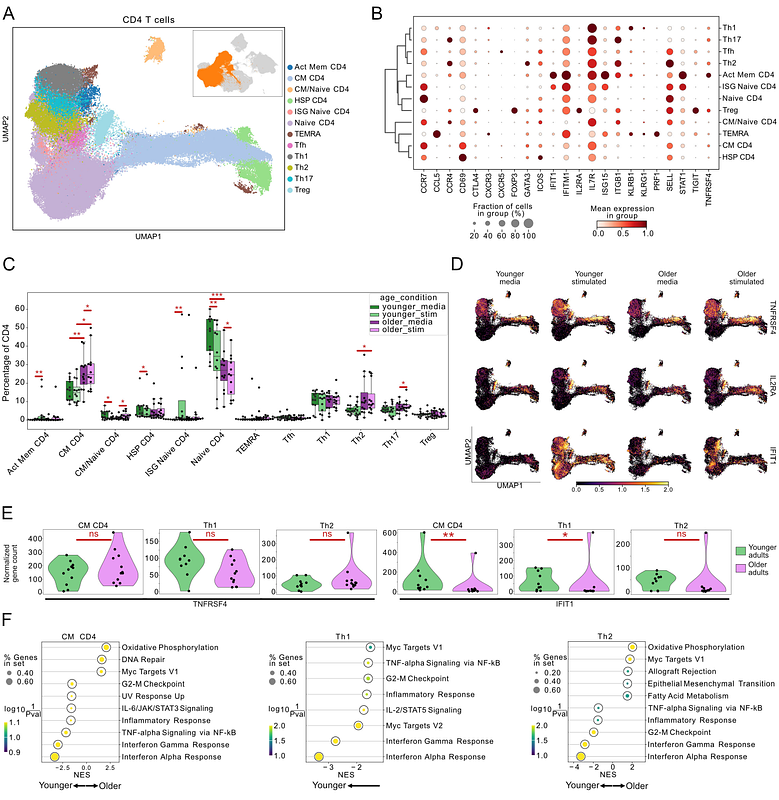Antiviral CD4+ T and myeloid cell responses to influenza vaccines are attenuated in older adults

Antiviral CD4+ T and myeloid cell responses to influenza vaccines are attenuated in older adults
Oakes, J. M.; Simmons, J. D.; Hager-Nochowicz, C.; Kirk, L.; Eason, J.; Halasa, N. B.; Talbot, H. K.; Bailin, S. S.; Castilho, J. L.; Kalams, S. A.
AbstractRecent influenza vaccine formulations have improved the magnitude of B-cell antibody responses in older adults; however, older adults remain significantly at risk for severe influenza-related illness. Although antibodies are an important metric of vaccine effectiveness, they only represent one aspect of the immune response. In this study, we combined in vitro and ex vivo assays with human samples to investigate B, CD4+ T, and myeloid cell responses to influenza vaccine antigens. We found that older adults mounted equivalent antibody titers to younger adults but had fewer influenza-specific CD4+ T cells and reduced antiviral-associated T helper cell populations. Single-cell transcriptomics revealed that older adults had attenuated interferon transcriptional signatures in T helper and myeloid cell subsets. These data suggest that with aging, transcriptional programming alterations in myeloid cells contribute to reduced antiviral T cell responses, and formulating vaccines tailored to myeloid responses is necessary to improve outcomes in older adults.